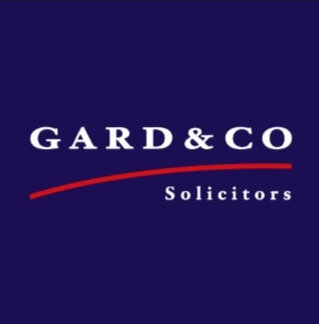Best Property Damage Lawyers in Plymouth
Share your needs with us, get contacted by law firms.
Free. Takes 2 min.
List of the best lawyers in Plymouth, United Kingdom
About Property Damage Law in Plymouth, United Kingdom
Property damage law covers the legal rights and obligations related to damage caused to real estate or personal property. In Plymouth, United Kingdom, property damage can result from vandalism, accidents, environmental events, construction disputes, or tenant-landlord issues. The law is designed to protect property owners, tenants, and other parties by providing mechanisms for claiming compensation and ensuring responsible parties are held accountable. Both civil and criminal laws may apply depending on the nature and severity of the damage.
Why You May Need a Lawyer
There are several common situations where seeking legal assistance for property damage in Plymouth may be necessary. These include disputes with neighbors over boundary damage, pursuing insurers who delay or deny claims, dealing with negligent builders or contractors, addressing landlord-tenant disagreements over repairs, and seeking compensation for vandalism or accidental damage to your property. A solicitor can provide legal advice on your rights, help negotiate settlements, represent you in court, and ensure any claim is accurately valued and documented.
Local Laws Overview
Plymouth, being part of England and Wales, falls under the national legal framework but also has local rules and processes to consider. Key aspects include:
- Civil Liability - Under the law of tort, anyone causing damage to someone else’s property through negligence or intentional acts can be held liable for compensation.
- Criminal Damage Act 1971 - Deliberate property damage may be a criminal offense, prosecuted by the Crown Prosecution Service. Victims can also seek compensation via the criminal courts.
- Landlord and Tenant Act 1985 - Outlines repair obligations, which landlords must fulfill or face legal consequences.
- Insurance Claims - Homeowner and business insurance policies provide routes for damage recovery, but legal help may be needed if claims are disputed.
- Statute of Limitations - Claims must generally be brought within six years of the damage occurring for civil cases.
- Plymouth City Council - Has powers and responsibilities relating to dangerous structures, environmental health, and nuisance arising from property damage.
Frequently Asked Questions
What is considered property damage in the legal sense?
Property damage refers to harm or destruction caused to someone’s home, business premises, land, or personal belongings, whether intentional or accidental.
Can I claim compensation for accidental damage caused by a neighbor?
Yes, you may claim compensation if you can prove your neighbor was negligent and their actions directly caused the damage.
What should I do if my landlord refuses to repair damage in my rental property?
You should formally notify your landlord of the required repairs. If they fail to act, you can contact Plymouth City Council or seek legal advice about taking further action.
How long do I have to bring a property damage claim in Plymouth?
Typically, you have six years from the date of the damage to start a civil claim for property damage.
Is vandalism to my property a civil or criminal matter?
Vandalism is considered criminal damage and can be reported to the police. You may also have a separate civil claim for compensation.
Will my insurance cover all forms of property damage?
It depends on your policy. Most standard policies cover accidental and some malicious damage, but you should check the terms and exclusions carefully.
Can I make a claim if my property was damaged by a business or construction company?
Yes, businesses and contractors have a legal duty of care. If they were negligent or breached a contract, you may claim compensation.
What evidence do I need to support my property damage claim?
Photos, repair estimates, eyewitness statements, and police reports are useful. Keep all documentation related to the damage and communications with the responsible party.
Who do I report environmental or public property damage to in Plymouth?
You can report such issues to Plymouth City Council. For incidents involving criminal activity, also contact the police.
Can mediation help resolve property damage disputes?
Yes, mediation is often encouraged for disputes between private parties as it can be quicker and cheaper than going to court.
Additional Resources
If you need assistance regarding property damage in Plymouth, the following resources can be helpful:
- Plymouth City Council - For local complaints, regulation questions, and housing standards.
- Citizens Advice Plymouth - Offers free legal advice and support on civil disputes and property rights.
- Action Fraud - For reporting criminal damage or vandalism.
- The Law Society - For finding a local solicitor specializing in property or civil law.
- Royal Institution of Chartered Surveyors (RICS) - For expert property surveys and repair assessments.
- Your building or contents insurance provider - For making claims and understanding policy coverage.
Next Steps
If you believe you have a property damage issue requiring legal assistance, follow these steps:
- Document the damage thoroughly with photos, videos, and written notes.
- Notify all relevant parties in writing, such as your landlord, insurer, neighbor, or the responsible party.
- Report criminal acts to the police and obtain a reference number.
- Check your insurance policy and contact your insurer as soon as possible for guidance on making a claim.
- Seek legal advice from a solicitor or Citizens Advice to understand your rights and the merits of your case.
- Consider mediation or alternative dispute resolution before pursuing court action, especially in neighbor or minor civil disputes.
- Take prompt action, as there are time limits for bringing most legal claims.
Navigating property damage issues can be complex, but understanding your rights and the local legal framework will help you take effective action to protect your interests.
Lawzana helps you find the best lawyers and law firms in Plymouth through a curated and pre-screened list of qualified legal professionals. Our platform offers rankings and detailed profiles of attorneys and law firms, allowing you to compare based on practice areas, including Property Damage, experience, and client feedback.
Each profile includes a description of the firm's areas of practice, client reviews, team members and partners, year of establishment, spoken languages, office locations, contact information, social media presence, and any published articles or resources. Most firms on our platform speak English and are experienced in both local and international legal matters.
Get a quote from top-rated law firms in Plymouth, United Kingdom — quickly, securely, and without unnecessary hassle.
Disclaimer:
The information provided on this page is for general informational purposes only and does not constitute legal advice. While we strive to ensure the accuracy and relevance of the content, legal information may change over time, and interpretations of the law can vary. You should always consult with a qualified legal professional for advice specific to your situation.
We disclaim all liability for actions taken or not taken based on the content of this page. If you believe any information is incorrect or outdated, please contact us, and we will review and update it where appropriate.











